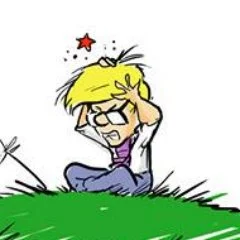Most are probably too young to remember but nanotechnology was supposed to be the most super amazing thing ever.
it didn’t disappear, just got to small for you to see 😉
Should still be somewhere. Maybe in the carpet or the sofa…
Damnit, stole my thunder.
Mine too! Reddit moment where we all think we’re original.
While we’re at it, how about cybernetics, too?
Remember that old 80s future movie where a guy with no cyber mods was trying to compete in a fighting competition in order to prove that it was better to be fully human?
We can literally give sight to the blind, hearing to the deaf, and make the lame walk again.
We also have the very cyberpunk distopian problem of people being left with implants that are no longer supported by the manufacturers [2] [3]
At least we don’t need Neuropozyne (Deus Ex).
Btw, what happened with the nanotubes-coated contacts that neurons are all too happy to connect to?
Prostetics have gotten extremely advanced in the last 20 years. People are controlling and getting real feedback from replacement limbs.
Unfortunately, even our most advanced ones are more limited than a lot of people think and have a high rejection rate of around 44% that’s never talked about. Some do genuinely like them, but many say they still prefer the relatively simple body powered prosthetics, or none at all.
This could change as advancements are made, but as of now they’re a bit of a scam.
Yeah, both nanotech and cybernetics are everyday things. Still very expensive, but both have mostly reached enough milestones that they go by whatever their more specific puposes are. Like prothetics with feedback aren’t called cybernetics because cybernetics is too broad a term.
I’m not sure which era you’re talking about exactly. Graphene and carbon nanotubes can’t be made both big and perfect, and are lame when imperfect. Nanoscopic robots have problems with sticking together and jumping around due to brownian forces, and also are just very hard to build. Chemical-based robotics has been a crapshoot because quantum chemistry is hard. The last one has been tackled with machine learning pretty well recently, where natural biological analogues exist.
As a result, about as far as we’ve gotten is nanoscopically fine dust. It has uses, but it’s only a technology the same way pea gravel is. It’s looking like a lot of the stuff nanobots were supposed to do is going to fall to biotech instead.
Love the phrase “quantum chemistry is hard” because it makes it sound as if it’s difficult for the average person, but I can only imagine it means that the smartest people alive are struggling with it haha.
Some Stephen Hawking level intellect is currently in a basement acting like an angry Jim Carrey because his math just chooses not to work.
MEMS have done wonders
I heard Bill gates installed it in covid vaccine for like 2 years straight.
For every vial, someone had to click next next finish, such an evil overlord
They should invent microscopic IT guys to do that automatically
It is still around, only the buzz around it died
It became normal and normal is boring.
Booo, get out of there with reasonable and grounded explanations!
I mean, most of the magical uses haven’t materialised. Computers are better, that’s about it. It has a few other commercial applications, but they’re indistinguishable from normal chemistry from a laymen’s perspective.
That highly depends on what you mean by “nanotechnology”. There are tons of advancements in medicine that use what most people would consider to be nanotechnology. As well as material science, robotics, energy production and storage, and telecommunications, to name a few.
Any that a laymen could tell from new chemistry? The bit after the comma was load-bearing there.
I mean how uninformed of a layman are we talking about? Do they know the difference between a molecule and a micelle?
Totally replaced by the most super amazing AI ever
It’s too small to be used by the average human being, which is why you don’t see it anymore.
It’s also too small to be seen by the average human.
Oh right. I guess you need a microscope too.
It’s still here, but you aren’t seeing it because it’s really small.
That’s exactly what my ex wife said.
it’s nanowhere
God damn that got me good!

omg this gif is hilarious
It wasn’t a big deal after all
I mean… you’re surrounded by trillions of perfect nanotech devices. They’re called MOSFETs, and they make literally the entire modern world go round.
It’s used in medicine, meta materials, and physics everyday.
This. You just don’t hear the word anymore. For example, it was instrumental in producing the COVID-19 vaccine.
The reason pencils work as well as they do is because of the way they are constructed, of nanomaterials.
Graphite is now a nano material?
Well it’s not suddenly a nano material. It’s always been one. We are still exploring it.
Much like one of the ways stained glass was colored in the medieval period involved adding materials to the glass that acted as nano materials. For example this one particular shade of red needed gold.
Micro-electro mechanical systems (MEMS) are extremely successful. You have them in your phone and lots of other devices. It turns out semiconductor manufacturing techniques could be leveraged to make some useful devices but that is about it. There is obviously a lot happening at these scales in biology, semiconductors, materials science etc but the grey goop of nanobots turned out to be a fantasy based on extrapolations that don’t seem to hold up well with physical materials thankfully. One less thing to worry about. Now we only have climate change, pathogens, war etc. Hopefully the machine learning bubble will blow over in a similar fashion, genuinely revolutionary in some areas but increasingly difficult/uneconomical to scale into others.
I’m studying nano science right now, I think it still exists. And if it does it’s still a super amazing thing.














